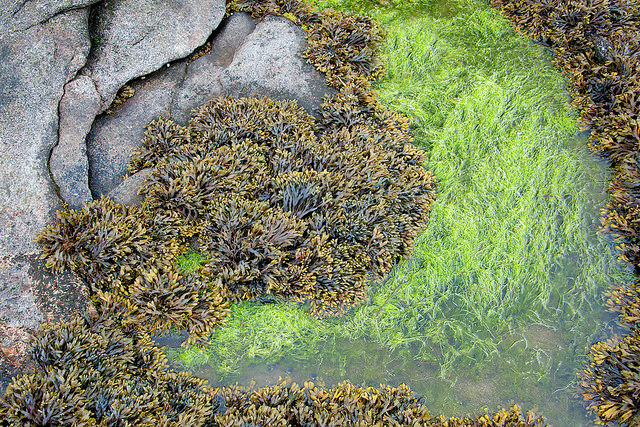This piece was originally published by the Pacific Legal Foundation, known for their track record and expertise in property rights litigation.
The concepts of property rights and conservation are unfortunately, and mistakenly, pitted against each other on a regular basis. But what happens when people are forced to fight for their property rights in order to conserve their land?
That’s the case in coastal Maine, where rockweed algae is king. Rockweed is a brown algae that grows in abundance along the state’s coastal areas. Its presence indicates high water quality, and it serves as a source of food, shelter, and spawning habitat for a wide variety of fish, shellfish, and waterfowl. It’s also one of the state’s most valuable natural resources. The algae is used in fertilizer, animal feed, and health supplements and has an annual harvest worth about $20 million.
Because of rockweed’s environmental and economic value, there’s a big market for companies looking to harvest it. In recent years, more commercial marine-product companies such as Acadian Seaplants began harvesting massive amounts of the algae all along Maine’s coast. But the land where Acadian was harvesting rockweed was the private property of coastal homeowners.
Many of the homeowners grew concerned that companies were overharvesting which would hurt the marine habitat where the algae grew. And the homeowners have the right to decide what happens on their property.
Because of this, hundreds of coastal property owners formed the Rockweed Coalition to fight commercial harvesting on their property. The group established a no-cut registry that allowed owners to explicitly signal they did not approve of rockweed harvesting on their land.
Harvesters and property owners have wrangled over the issue for years. Acadian argued that rockweed on private property could be harvested as a public right. But just because a company wants to make money doesn’t mean they can use someone’s property against their will.
So members of the Rockweed Coalition sued Acadian for violating their property rights and the coalition’s case against Acadian Seaplants ended up in front of Maine’s highest court. In 2017, PLF and the Property and Environment Research Center (PERC), a think tank dedicated to sustainable free market environmental policies, filed an amicus brief in the case supporting the property owners’ rights.
“Recognizing the property owners’ right to the rockweed growing on their land,” the brief read, “will encourage putting it to its highest use by allowing property owners to weigh the value of conserving rockweed against what harvesters are willing to pay.”
In March, the Supreme Judicial Court of Maine finally settled the dispute, siding with private property owners. Justice Jeffrey Hjelm summed up the majority opinion: “We agree that rockweed in the intertidal zone belongs to the upland property owner and therefore is not public property […] and cannot be harvested by members of the public as a matter of right.”
The decision was welcome not only because property rights are important for their own sake, but also because the ruling allowed the incentives that promote better conservation of the land and rockweed.
In siding with property owners, the Maine Supreme Judicial Court prevented environmental problems like the ones that have plagued some fisheries around the globe. Poorly planned government regulations that discourage property rights for natural resources have incentivized a free-for-all in some fisheries, resulting in overharvesting. Fortunately, management systems rooted in property rights appear to be curbing the problem.
Many fisheries have adopted systems that use catch shares, which set an ecologically sustainable harvest quota and then divvy it up into tradable portions. A landmark study in Science looked at 11,000 fisheries and found that catch shares hold the potential to halt or even reverse the collapse of fisheries.
By deferring to property rights in the case of rockweed, the Maine court championed constitutional rights and good policy. Property rights produce the strongest incentives for good environmental stewardship. If owners use their resources unsustainably, they bear the consequences. When it comes to rockweed, poor caretakers will lose the economic and environmental benefits that come from healthy algae on their property. A good caretaker, on the other hand, enjoys healthier land and a potentially healthier bank account.
Now, when companies want to harvest resources like rockweed they can negotiate fair, sustainable, and mutually beneficial harvest agreements with landowners. That’s a win for property owners and algae alike.




